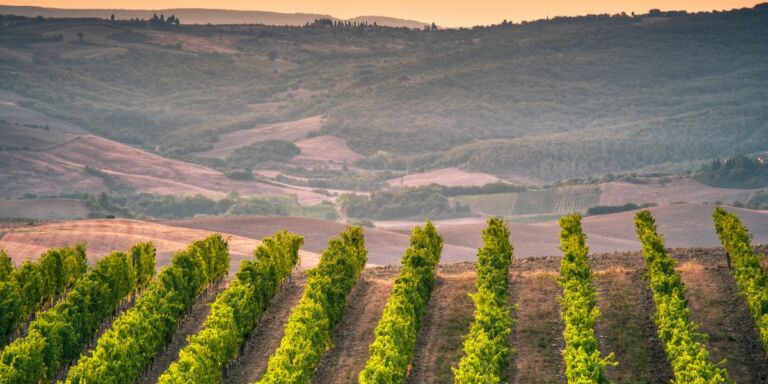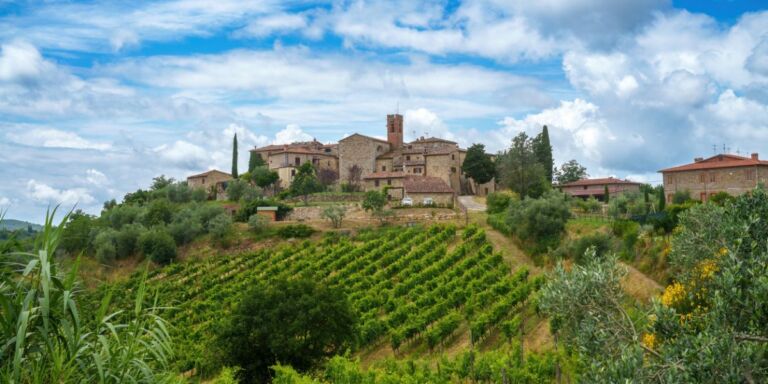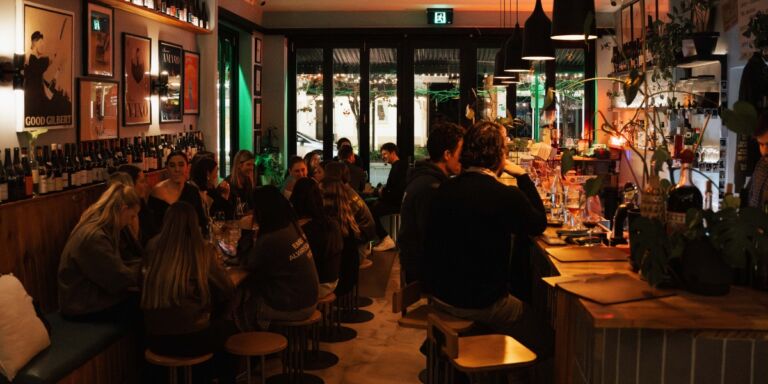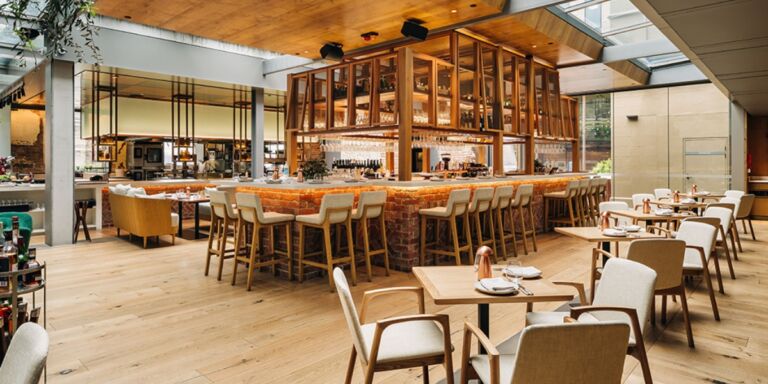On a sunny June day a year and a half ago, I was walking part of the celebrated To Kalon vineyard in Napa Valley with brothers Graeme and Alex MacDonald, and admiring their family’s small patch of gnarled 65-year-old Cabernet Sauvignon vines.
Wisps of clouds hovered in the blue sky above the scene of twisted vines, ancient oaks and olive trees, a tiny white frame cottage, and a golden retriever named Honeybee chasing butterflies.
But it’s a deceptively peaceful picture. Napa’s most famous vineyard, long considered one of California’s “grands crus,” is mired in controversy and lawsuits over who can put the name To Kalon on their wine labels and whether the vineyard is a place or a brand.


The MacDonalds can’t use the name for their 400 cases of wine, even though their family’s 15 acres (6ha) of vines lie within this several hundred-acre historic vineyard in west Oakville.
For 130-odd years, it’s been known as To Kalon, meaning “the highest beauty.” Its vines stretch from Highway 29 to the foothills of the Mayacamas Mountains, where up-valley warmth meets cooler air from the south. The soil – gravel and silt washed down from mountain slopes – has produced some of Napa’s greatest (and most expensive) red wines, contributing to the mythology of Napa Valley as a Cabernet Sauvignon paradise. The wines are layered, soft-textured, opulent, with fine, silky tannins and notes of dark chocolate.
Six wineries and growers own parts of To Kalon, but only Robert Mondavi Winery, with some 446 acres (180ha), owns the rights to the name. Mondavi trademarked it in 1988, claiming the name had no significance in the wine industry. That was clearly incorrect.


The latest legal showdown, a trial that starts on 30 November at the US District Court for the Northern District of California, brings in a seventh player, Jeremy Justin Nickel and his winery The Vineyard House, to challenge the Mondavi Winery and its owner, New York-based Constellation Brands. Constellation is one of the world’s biggest wine companies and can deploy a battery of sharp corporate lawyers. Constellation and Nickel have been suing and counter-suing each other since mid-2019 over the right to use the words “To Kalon” on their bottles. In January this year Constellation filed a trademark infringement lawsuit against The Vineyard House for its use of the words “H W Crabb’s To-Kalon Vineyard” on its Block 8 Cabernet Sauvignon 2015.
You might be thinking all this sounds like legalistic manoeuvering to put a famous vineyard name on the label so as to charge more money for the wine inside the bottle. And there is some truth in that. But the questions the lawsuit raises could have far-reaching effects for a host of historic vineyards in California and other wine regions in the US.
Nickel’s position is that owners of vines in historic vineyards should be able to identify that place on the label whether or not a trademark is held by another winery. That would require him to prove his vineyard is within To Kalon’s historic boundaries, which are disputed.
If Constellation and Mondavi win, what will happen to other well-known vineyard names in American wine country?
The outcome may also decide whether To Kalon is a special geographic place, as MacDonald and Nickel believe, or whether, as Constellation asserts, it’s a brand belonging to its corporation alone. Constellation has said it has the right to call any wine made anywhere in the world To Kalon, regardless of where the grapes are from.
If Constellation and Mondavi win, what will happen to other well-known vineyard names in American wine country? Could E & J Gallo decide that no one can identify their wine as coming from Stagecoach or Monte Rosso vineyards, and put those names on international wine projects?
It wouldn’t be the first time. Last month Australian wine giant Treasury Wine Estates announced its plan to release a Bordeaux wine under the label of one of Napa’s founding wineries, Beaulieu Vineyard, primarily for the Chinese market.

For vineyards, the problem is worse. “Place is critical to great wines,” says Tom Garrett of Detert, another boutique winery with To Kalon vines. “And history is critical to humanity. To hollow those out for a trademark is tragic.”
Andy Beckstoffer, who owns 89 acres (36ha) of To Kalon, adds, “Once places can be trademarked, you violate the integrity of the name, the history, and the whole idea of terroir. And that reflects on the entire valley.”
Beckstoffer sells grapes to a dozen top winemakers, including Paul Hobbs, whose To Kalon bottlings (at $549 each) have boosted the vineyard’s current fame. In a lawsuit settlement with Mondavi more than a decade ago, Beckstoffer won the right for his clients to use Beckstoffer To Kalon on their labels.


Documenting the vineyard’s historic importance as a place became Graeme MacDonald’s mission. He’s logged hundreds of hours of research over the past few years. As we sipped his lush 2015 MacDonald Cabernet in his cottage, he pulled out part of his collection: invoices dated 1889 preserved in clear plastic, old photographs and deeds, original yellowed letters, and postcards that all feature the name.
The tale started with Napa pioneer H W Crabb, who bought land in 1868, planted some 400 varieties and perhaps the first Cabernet vines, started a viticultural empire, and named the estate To Kalon. Over the following decades, the vineyard’s fortunes went up and down with different owners, and the boundaries shifted and expanded.
Fast forward to the modern era, and the Mondavi family, namely the legendary Robert Mondavi, who built his winery on a corner of the To Kalon vineyard and gradually acquired several hundred acres. But he waited decades before putting the name on any label.
Constellation, which bought Mondavi in 2004, has capitalized on the name, launching the To Kalon Vineyard Company earlier this year with a plush, concentrated Cabernet, the $200 The Highest Beauty, made by celebrated winemaker Andy Erickson from special plots of – you guessed it – the To Kalon vineyard.
Though Constellation Brands insists To Kalon is not a place, history suggests otherwise. MacDonald has used his research to nominate To Kalon Vineyard for National Register of Historic Places status, something Constellation is fighting.
“It’s my belief,” MacDonald says, “that the To Kalon Vineyard can set the precedent for how we define vineyard designations in America for the future.” As to how it does so, the courts will decide.







